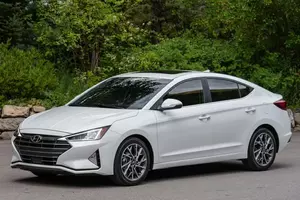
| Vehicle | Precise engine size | Difference from world average | Engine size to consumption ratio | Horsepower from 1 L | Engine size to 100 kg of weight |
|---|---|---|---|---|---|
| 1.4 Turbo GDI |
1.35 L (1353 cc) |
42.3% smaller | - | 95 hp from 1 L | 104 cc to 100 kg |
| 2.0 |
2 L (1999 cc) |
14.8% smaller | 69 cc to 1 mpg | 74 hp from 1 L | 154 cc to 100 kg |
| Sport 1.6 Turbo GDI |
1.59 L (1591 cc) |
32.2% smaller | - | 126 hp from 1 L | - |
| Vehicle | 1.4 Turbo GDI |
|---|---|
| Precise engine size | 1.35 L (1353 cc) |
| Difference from world average | 42.3 smaller |
| Engine size to consumption ratio | - |
| Horsepower from 1 L | 95 hp from 1 L |
| Engine size to 100 kg of weight | 104 cc to 100 kg |
| Vehicle | 2.0 |
| Precise engine size | 2 L (1999 cc) |
| Difference from world average | 14.8 smaller |
| Engine size to consumption ratio | 69 cc to 1 mpg |
| Horsepower from 1 L | 74 hp from 1 L |
| Engine size to 100 kg of weight | 154 cc to 100 kg |
| Vehicle | Sport 1.6 Turbo GDI |
| Precise engine size | 1.59 L (1591 cc) |
| Difference from world average | 32.2 smaller |
| Engine size to consumption ratio | - |
| Horsepower from 1 L | 126 hp from 1 L |
| Engine size to 100 kg of weight | - |
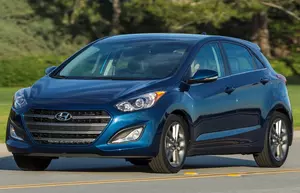
| Vehicle | Precise engine size | Difference from world average | Engine size to consumption ratio | Horsepower from 1 L | Engine size to 100 kg of weight |
|---|---|---|---|---|---|
| N Line 1.6 |
1.59 L (1591 cc) |
32.2% smaller | 57 cc to 1 mpg | 128 hp from 1 L | 114 cc to 100 kg |
| 2.0 |
2 L (1999 cc) |
14.8% smaller | 74 cc to 1 mpg | 82 hp from 1 L | 154 cc to 100 kg |
| Vehicle | N Line 1.6 |
|---|---|
| Precise engine size | 1.59 L (1591 cc) |
| Difference from world average | 32.2 smaller |
| Engine size to consumption ratio | 57 cc to 1 mpg |
| Horsepower from 1 L | 128 hp from 1 L |
| Engine size to 100 kg of weight | 114 cc to 100 kg |
| Vehicle | 2.0 |
| Precise engine size | 2 L (1999 cc) |
| Difference from world average | 14.8 smaller |
| Engine size to consumption ratio | 74 cc to 1 mpg |
| Horsepower from 1 L | 82 hp from 1 L |
| Engine size to 100 kg of weight | 154 cc to 100 kg |
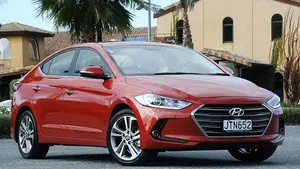
| Vehicle | Precise engine size | Difference from world average | Engine size to consumption ratio | Horsepower from 1 L | Engine size to 100 kg of weight |
|---|---|---|---|---|---|
| 1.4 |
1.35 L (1353 cc) |
42.3% smaller | 39 cc to 1 mpg | 96 hp from 1 L | 104 cc to 100 kg |
| 2.0 |
2 L (1999 cc) |
14.8% smaller | 61 cc to 1 mpg | 75 hp from 1 L | 154 cc to 100 kg |
| Vehicle | 1.4 |
|---|---|
| Precise engine size | 1.35 L (1353 cc) |
| Difference from world average | 42.3 smaller |
| Engine size to consumption ratio | 39 cc to 1 mpg |
| Horsepower from 1 L | 96 hp from 1 L |
| Engine size to 100 kg of weight | 104 cc to 100 kg |
| Vehicle | 2.0 |
| Precise engine size | 2 L (1999 cc) |
| Difference from world average | 14.8 smaller |
| Engine size to consumption ratio | 61 cc to 1 mpg |
| Horsepower from 1 L | 75 hp from 1 L |
| Engine size to 100 kg of weight | 154 cc to 100 kg |

| Vehicle | Precise engine size | Difference from world average | Engine size to consumption ratio | Horsepower from 1 L | Engine size to 100 kg of weight |
|---|---|---|---|---|---|
| 1.6i Automatic |
1.59 L (1591 cc) |
32.2% smaller | - | 77 hp from 1 L | 133 cc to 100 kg |
| 1.6i MT |
1.59 L (1591 cc) |
32.2% smaller | - | 77 hp from 1 L | 133 cc to 100 kg |
| 2.0i MT |
1.98 L (1975 cc) |
15.8% smaller | 60 cc to 1 mpg | 72 hp from 1 L | 165 cc to 100 kg |
| 2.0i Automatic |
1.98 L (1975 cc) |
15.8% smaller | - | 72 hp from 1 L | 165 cc to 100 kg |
| Vehicle | 1.6i Automatic |
|---|---|
| Precise engine size | 1.59 L (1591 cc) |
| Difference from world average | 32.2 smaller |
| Engine size to consumption ratio | - |
| Horsepower from 1 L | 77 hp from 1 L |
| Engine size to 100 kg of weight | 133 cc to 100 kg |
| Vehicle | 1.6i MT |
| Precise engine size | 1.59 L (1591 cc) |
| Difference from world average | 32.2 smaller |
| Engine size to consumption ratio | - |
| Horsepower from 1 L | 77 hp from 1 L |
| Engine size to 100 kg of weight | 133 cc to 100 kg |
| Vehicle | 2.0i MT |
| Precise engine size | 1.98 L (1975 cc) |
| Difference from world average | 15.8 smaller |
| Engine size to consumption ratio | 60 cc to 1 mpg |
| Horsepower from 1 L | 72 hp from 1 L |
| Engine size to 100 kg of weight | 165 cc to 100 kg |
| Vehicle | 2.0i Automatic |
| Precise engine size | 1.98 L (1975 cc) |
| Difference from world average | 15.8 smaller |
| Engine size to consumption ratio | - |
| Horsepower from 1 L | 72 hp from 1 L |
| Engine size to 100 kg of weight | 165 cc to 100 kg |
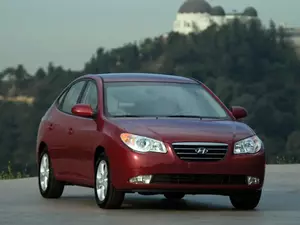
| Vehicle | Precise engine size | Difference from world average | Engine size to consumption ratio | Horsepower from 1 L | Engine size to 100 kg of weight |
|---|---|---|---|---|---|
| 1.6 i 16V |
1.59 L (1591 cc) |
32.2% smaller | - | 77 hp from 1 L | 133 cc to 100 kg |
| 2.0 i 16V |
1.98 L (1975 cc) |
15.8% smaller | - | 72 hp from 1 L | - |
| 1.6 CRDi |
1.58 L (1582 cc) |
32.6% smaller | - | 54 hp from 1 L | 122 cc to 100 kg |
| Vehicle | 1.6 i 16V |
|---|---|
| Precise engine size | 1.59 L (1591 cc) |
| Difference from world average | 32.2 smaller |
| Engine size to consumption ratio | - |
| Horsepower from 1 L | 77 hp from 1 L |
| Engine size to 100 kg of weight | 133 cc to 100 kg |
| Vehicle | 2.0 i 16V |
| Precise engine size | 1.98 L (1975 cc) |
| Difference from world average | 15.8 smaller |
| Engine size to consumption ratio | - |
| Horsepower from 1 L | 72 hp from 1 L |
| Engine size to 100 kg of weight | - |
| Vehicle | 1.6 CRDi |
| Precise engine size | 1.58 L (1582 cc) |
| Difference from world average | 32.6 smaller |
| Engine size to consumption ratio | - |
| Horsepower from 1 L | 54 hp from 1 L |
| Engine size to 100 kg of weight | 122 cc to 100 kg |

| Vehicle | Precise engine size | Difference from world average | Engine size to consumption ratio | Horsepower from 1 L | Engine size to 100 kg of weight |
|---|---|---|---|---|---|
| 2.0 i 16V |
1.98 L (1975 cc) |
15.8% smaller | 64 cc to 1 mpg | 72 hp from 1 L | 141 cc to 100 kg |
| 1.6 |
1.6 L (1599 cc) |
31.8% smaller | 47 cc to 1 mpg | 67 hp from 1 L | 123 cc to 100 kg |
| 2.0 |
1.98 L (1975 cc) |
15.8% smaller | 68 cc to 1 mpg | 70 hp from 1 L | 152 cc to 100 kg |
| 1.8 |
1.8 L (1796 cc) |
23.4% smaller | - | 73 hp from 1 L | 138 cc to 100 kg |
| 2.0 CRD i |
1.99 L (1991 cc) |
15.1% smaller | 54 cc to 1 mpg | 57 hp from 1 L | 142 cc to 100 kg |
| Vehicle | 2.0 i 16V |
|---|---|
| Precise engine size | 1.98 L (1975 cc) |
| Difference from world average | 15.8 smaller |
| Engine size to consumption ratio | 64 cc to 1 mpg |
| Horsepower from 1 L | 72 hp from 1 L |
| Engine size to 100 kg of weight | 141 cc to 100 kg |
| Vehicle | 1.6 |
| Precise engine size | 1.6 L (1599 cc) |
| Difference from world average | 31.8 smaller |
| Engine size to consumption ratio | 47 cc to 1 mpg |
| Horsepower from 1 L | 67 hp from 1 L |
| Engine size to 100 kg of weight | 123 cc to 100 kg |
| Vehicle | 2.0 |
| Precise engine size | 1.98 L (1975 cc) |
| Difference from world average | 15.8 smaller |
| Engine size to consumption ratio | 68 cc to 1 mpg |
| Horsepower from 1 L | 70 hp from 1 L |
| Engine size to 100 kg of weight | 152 cc to 100 kg |
| Vehicle | 1.8 |
| Precise engine size | 1.8 L (1796 cc) |
| Difference from world average | 23.4 smaller |
| Engine size to consumption ratio | - |
| Horsepower from 1 L | 73 hp from 1 L |
| Engine size to 100 kg of weight | 138 cc to 100 kg |
| Vehicle | 2.0 CRD i |
| Precise engine size | 1.99 L (1991 cc) |
| Difference from world average | 15.1 smaller |
| Engine size to consumption ratio | 54 cc to 1 mpg |
| Horsepower from 1 L | 57 hp from 1 L |
| Engine size to 100 kg of weight | 142 cc to 100 kg |
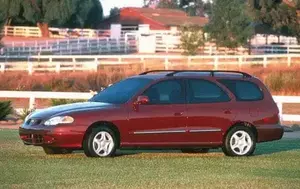
| Vehicle | Precise engine size | Difference from world average | Engine size to consumption ratio | Horsepower from 1 L | Engine size to 100 kg of weight |
|---|---|---|---|---|---|
| 1.6 |
1.6 L (1599 cc) |
31.8% smaller | 50 cc to 1 mpg | 67 hp from 1 L | 123 cc to 100 kg |
| 2.0 |
1.98 L (1975 cc) |
15.8% smaller | - | 70 hp from 1 L | 152 cc to 100 kg |
| 1.8 |
1.8 L (1796 cc) |
23.4% smaller | - | 73 hp from 1 L | 138 cc to 100 kg |
| 2.0 CRD i |
1.99 L (1991 cc) |
15.1% smaller | - | 57 hp from 1 L | 166 cc to 100 kg |
| Vehicle | 1.6 |
|---|---|
| Precise engine size | 1.6 L (1599 cc) |
| Difference from world average | 31.8 smaller |
| Engine size to consumption ratio | 50 cc to 1 mpg |
| Horsepower from 1 L | 67 hp from 1 L |
| Engine size to 100 kg of weight | 123 cc to 100 kg |
| Vehicle | 2.0 |
| Precise engine size | 1.98 L (1975 cc) |
| Difference from world average | 15.8 smaller |
| Engine size to consumption ratio | - |
| Horsepower from 1 L | 70 hp from 1 L |
| Engine size to 100 kg of weight | 152 cc to 100 kg |
| Vehicle | 1.8 |
| Precise engine size | 1.8 L (1796 cc) |
| Difference from world average | 23.4 smaller |
| Engine size to consumption ratio | - |
| Horsepower from 1 L | 73 hp from 1 L |
| Engine size to 100 kg of weight | 138 cc to 100 kg |
| Vehicle | 2.0 CRD i |
| Precise engine size | 1.99 L (1991 cc) |
| Difference from world average | 15.1 smaller |
| Engine size to consumption ratio | - |
| Horsepower from 1 L | 57 hp from 1 L |
| Engine size to 100 kg of weight | 166 cc to 100 kg |
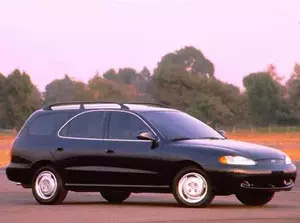
| Vehicle | Precise engine size | Difference from world average | Engine size to consumption ratio | Horsepower from 1 L | Engine size to 100 kg of weight |
|---|---|---|---|---|---|
| 1.6 16V |
1.6 L (1599 cc) |
31.8% smaller | - | 71 hp from 1 L | 123 cc to 100 kg |
| 1.8 16V |
1.8 L (1795 cc) |
23.5% smaller | - | 71 hp from 1 L | 150 cc to 100 kg |
| 1.6 i |
1.6 L (1599 cc) |
31.8% smaller | - | 56 hp from 1 L | 123 cc to 100 kg |
| 2.0 16V |
1.98 L (1975 cc) |
15.8% smaller | - | 70 hp from 1 L | 152 cc to 100 kg |
| Vehicle | 1.6 16V |
|---|---|
| Precise engine size | 1.6 L (1599 cc) |
| Difference from world average | 31.8 smaller |
| Engine size to consumption ratio | - |
| Horsepower from 1 L | 71 hp from 1 L |
| Engine size to 100 kg of weight | 123 cc to 100 kg |
| Vehicle | 1.8 16V |
| Precise engine size | 1.8 L (1795 cc) |
| Difference from world average | 23.5 smaller |
| Engine size to consumption ratio | - |
| Horsepower from 1 L | 71 hp from 1 L |
| Engine size to 100 kg of weight | 150 cc to 100 kg |
| Vehicle | 1.6 i |
| Precise engine size | 1.6 L (1599 cc) |
| Difference from world average | 31.8 smaller |
| Engine size to consumption ratio | - |
| Horsepower from 1 L | 56 hp from 1 L |
| Engine size to 100 kg of weight | 123 cc to 100 kg |
| Vehicle | 2.0 16V |
| Precise engine size | 1.98 L (1975 cc) |
| Difference from world average | 15.8 smaller |
| Engine size to consumption ratio | - |
| Horsepower from 1 L | 70 hp from 1 L |
| Engine size to 100 kg of weight | 152 cc to 100 kg |

| Vehicle | Precise engine size | Difference from world average | Engine size to consumption ratio | Horsepower from 1 L | Engine size to 100 kg of weight |
|---|---|---|---|---|---|
| 1.6 16V |
1.6 L (1599 cc) |
31.8% smaller | - | 71 hp from 1 L | 133 cc to 100 kg |
| 2.0 16V |
1.98 L (1975 cc) |
15.8% smaller | - | 70 hp from 1 L | 152 cc to 100 kg |
| 1.6 i |
1.6 L (1599 cc) |
31.8% smaller | - | 56 hp from 1 L | 133 cc to 100 kg |
| 1.8 16V |
1.8 L (1795 cc) |
23.5% smaller | - | 71 hp from 1 L | 150 cc to 100 kg |
| Vehicle | 1.6 16V |
|---|---|
| Precise engine size | 1.6 L (1599 cc) |
| Difference from world average | 31.8 smaller |
| Engine size to consumption ratio | - |
| Horsepower from 1 L | 71 hp from 1 L |
| Engine size to 100 kg of weight | 133 cc to 100 kg |
| Vehicle | 2.0 16V |
| Precise engine size | 1.98 L (1975 cc) |
| Difference from world average | 15.8 smaller |
| Engine size to consumption ratio | - |
| Horsepower from 1 L | 70 hp from 1 L |
| Engine size to 100 kg of weight | 152 cc to 100 kg |
| Vehicle | 1.6 i |
| Precise engine size | 1.6 L (1599 cc) |
| Difference from world average | 31.8 smaller |
| Engine size to consumption ratio | - |
| Horsepower from 1 L | 56 hp from 1 L |
| Engine size to 100 kg of weight | 133 cc to 100 kg |
| Vehicle | 1.8 16V |
| Precise engine size | 1.8 L (1795 cc) |
| Difference from world average | 23.5 smaller |
| Engine size to consumption ratio | - |
| Horsepower from 1 L | 71 hp from 1 L |
| Engine size to 100 kg of weight | 150 cc to 100 kg |
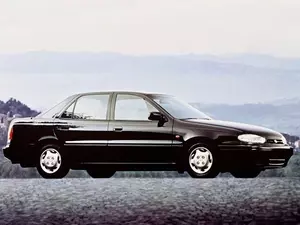
| Vehicle | Precise engine size | Difference from world average | Engine size to consumption ratio | Horsepower from 1 L | Engine size to 100 kg of weight |
|---|---|---|---|---|---|
| 1.5 i.e. |
1.47 L (1468 cc) |
37.4% smaller | 46 cc to 1 mpg | 57 hp from 1 L | 147 cc to 100 kg |
| 1.8 i.e. 16V |
1.84 L (1836 cc) |
21.7% smaller | 63 cc to 1 mpg | 69 hp from 1 L | 167 cc to 100 kg |
| 1.6 i.e. 16V |
1.6 L (1596 cc) |
32% smaller | 50 cc to 1 mpg | 71 hp from 1 L | 133 cc to 100 kg |
| Vehicle | 1.5 i.e. |
|---|---|
| Precise engine size | 1.47 L (1468 cc) |
| Difference from world average | 37.4 smaller |
| Engine size to consumption ratio | 46 cc to 1 mpg |
| Horsepower from 1 L | 57 hp from 1 L |
| Engine size to 100 kg of weight | 147 cc to 100 kg |
| Vehicle | 1.8 i.e. 16V |
| Precise engine size | 1.84 L (1836 cc) |
| Difference from world average | 21.7 smaller |
| Engine size to consumption ratio | 63 cc to 1 mpg |
| Horsepower from 1 L | 69 hp from 1 L |
| Engine size to 100 kg of weight | 167 cc to 100 kg |
| Vehicle | 1.6 i.e. 16V |
| Precise engine size | 1.6 L (1596 cc) |
| Difference from world average | 32 smaller |
| Engine size to consumption ratio | 50 cc to 1 mpg |
| Horsepower from 1 L | 71 hp from 1 L |
| Engine size to 100 kg of weight | 133 cc to 100 kg |